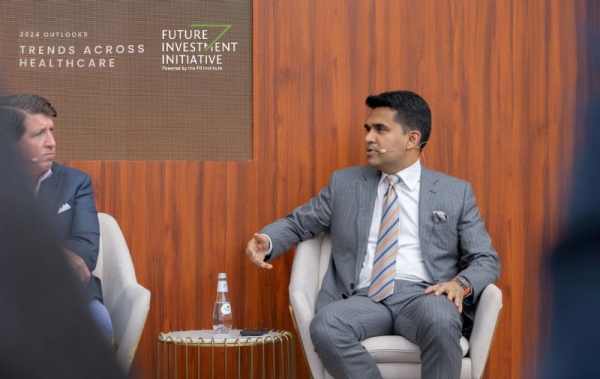
Until recently, new users had to obtain an invite from an existing user to access the application
JEDDAH: Experts in Saudi Arabia have reacted to reports that audio-chatting social platform Clubhouse has experienced a data breach and billions of users’ phone numbers have been offered for sale on the darknet.
Clubhouse denies the reports, however, and said the phone numbers being offered for sale were created randomly.
Reports over the weekend suggested that Clubhouse data had been accessed and hackers had obtained more than 3.8 billion phone numbers from the app’s servers.
Abdulsalam Al-Hamzani, a Saudi cybersecurity expert and instructor, told Arab News that if the reports are accurate, the application could have been compromised.
He said: “In a hacked application, any type of information we share with the app is exposed to the risk of being leaked,” whether it is phone numbers, access to a phone’s microphone and camera, or any pictures and videos that are shared.
Denying reports about data breach, a spokesman for the app told the Indo-Asian News Service: “There are a series of bots generating billions of random phone numbers.”
HIGHLIGHT
Reports over the weekend suggested that Clubhouse data had been accessed and hackers had obtained more than 3.8 billion phone numbers from the app’s servers.
“In the event that one of these random numbers happens to exist on our platform due to mathematical coincidence, Clubhouse’s API (application programming interface) returns no user identifiable information.”
Al-Hamzani said that Clubhouse appeals to many people because it offers something new.
“Many applications lack one thing: An audio chat room,” he said. Its conference call-style format has been described as an online “majlis,” or a sitting room where people with common interests can gather and share their thoughts.
Until recently, new users had to obtain an invite from an existing user to access the application. Al-Hamzani said this gave Clubhouse added credibility.
“These two factors (the audio chat room format and the exclusivity of the invite policy) are what helped spread the application,” he added.
Mohammad Al-Kadi, a 35-year-old Saudi who is a senior consultant in cybersecurity, said it can be difficult for people to keep track of how their information is used or exposed online but there are steps they can take to reduce the risks.
“Avoid using your personal information on social media and websites as much as you can,” he told Arab News.












